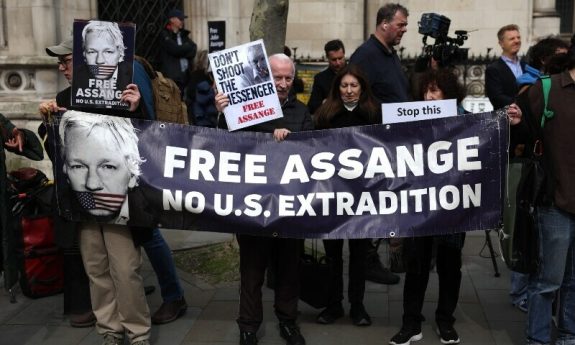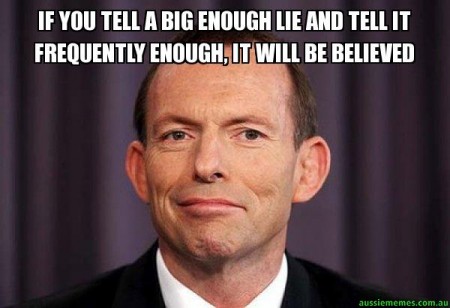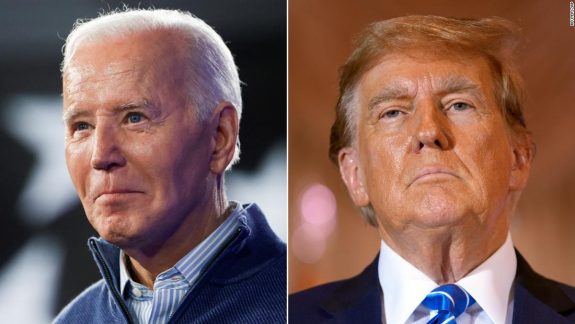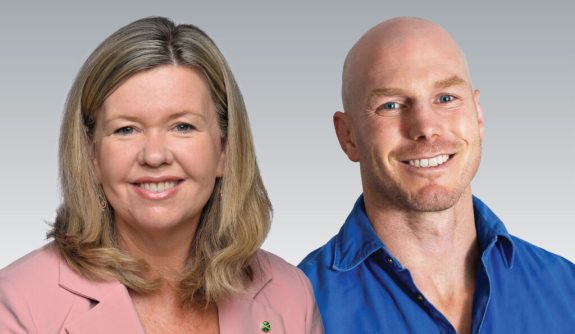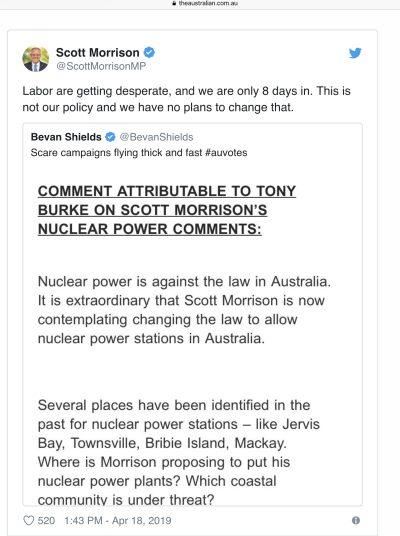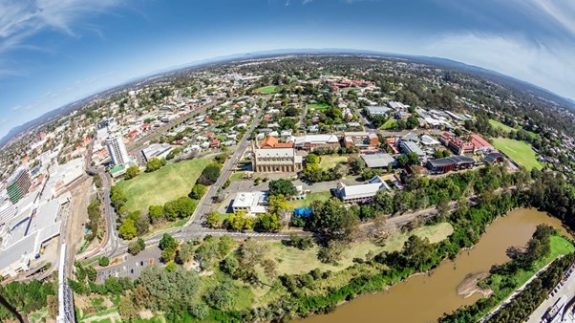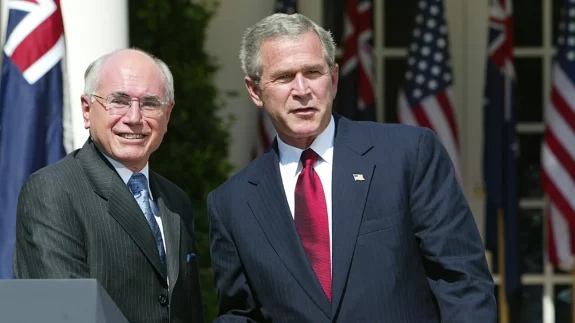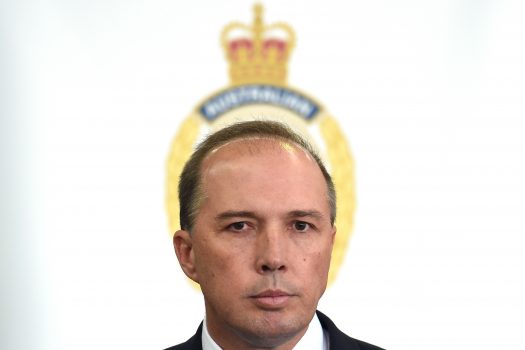It’s incredible. Such is our love-in with Peter “Junkyard” Dutton, our former Border Overlord, who used to play the bad cop dispensing rough justice–doing whatever it took to keep us safe-that today, he’s being cheered by most of the press gallery for reckless endangerment in his punt on nuclear energy.
Is it just to please his sponsor, Gina Rinehart and other richly attractive mining oligarchs who will make a few extra billion out of delaying the end of coal-fired power generation? Even if they do hasten the end of the world, they do get to star in their own perverted, planet-destroying mother of all snuff movies?
Or… brace yourself- does “Dutts” blunt truth and other fiction’s pin up boy-harbour ulterior motives?
Of course. A whiff of Emu Field, Montebello and Maralinga on the campaign trail helps with Coalition branding and product differentiation. “I’m with nuclear, stupid” would be a killer of an election slogan. Albo and Dutts could get together to whip up a referendum for the next federal democracy sausage BBQ. Besides, no-one in the nuclear power side hustle isn’t also itching to develop his or her own nuclear weapon cycle. Nuclear energy only makes sense if you are a nuclear arms manufacturer.
And what a boon for democracy. Voters choose between the pro-mining, colliery-opening, Labor Party and the pro-mining right-wing rump of a moribund Liberal Party, only in the race because of its secret agreement with the National Party, a mob of pro-mining, faux populists who pose as saviours of The Bush and its battlers, such as Riverview Old Boy, Barnaby Thomas Gerald Joyce’s Weatherboard Nine.
Or Bob Katter’s family which includes the incredibly successful arms manufacturer, son-in-law Rob Nioa.
Nuclear is also a feint in the climate wars. Let’s talk tactics. Team Dutton can say that Labor is on the right track but has “no credible pathway” unless you have nuclear energy in the brew, firming up your mix. The Liberal Party plays the front end of the Coalition panto horse; the Nationals bring up the rear.
And just as he did after defeat in Aston, Dutton dashes into nuclear after his Dunkley debacle. Note he’s now a big reactor man, having got the email that small modular reactors are scarce as rocking-horse manure. It’s a revolutionary turn. A year or so ago, Dutts opposed, “the establishment of big nuclear facilities”. But being a conservative in Australian politics means, you don’t have to explain or apologise.
Nor do you have to heed our scientists. “… the CSIRO has made clear, large reactors are too large for our small grids, and small reactors are still unproven commercially.”
Smear them. Say it’s a discredited study.
Sean Kelly sees Dutton’s pro-nuclear vision as a way of buying unity. Nobody on Dutton’s team thinks it’s a real policy, he claims, and it’s a long-term fantasy, so they won’t buck Dutton’s wilful stupidity. He’s sniping at CSIRO, too, which always wins friends amongst a growing anti-science brigade, a resource tapped into shamelessly by such figures as, “planter saint”, Barnaby Joyce; off his nut about the “green peril”. The former deputy PM also calls windmills, “filth” whilst renewable energy is a “swindle”.
The Coalition attack on CSIRO parallels its harassment of a now cowed ABC, on which it inflicted a barrage of criticism, funding cuts and Morrison’s captain’s pick of Ita Buttrose as chair. Cutbacks in the CSIRO have also taken their toll but their CEO, Professor Doug Hilton publicly rebukes Dutton.
“For science to be useful and for challenges to be overcome it requires the trust of the community. Maintaining trust requires scientists to act with integrity. Maintaining trust also requires our political leaders to resist the temptation to disparage science.”
Kelly might add that the Coalition is riven by at least ten factions, post-Morrison, and has rivals hatching plots of helping their leader by taking his job away from him. One of these, with some experience of edged weapons, is former SAS Patrol Commander, Captain Andrew Hastie who must have been cheered when in 2017 the AFP cleared of war crimes, an SAS soldier who cut the hands off two suspected Taliban fighters. Handy Andy was in command of some other soldiers at the scene. Hastie’s mentor is none other than party kingmaker, Big Mining Shill and fellow happy clapper, the Nationals’ John Anderson.
A spill now could avoid some bloodletting in the next federal election, a surgical strike, perhaps.
Rex Patrick sees Peter Dutton’s move as a “nasty” political wedge given that the federal Labor government has already signed us on to Morrison’s AUKUS which guarantees a small modular nuclear reactor inside a submarine moored near you if you happen to live close to HMAS Stirling Naval Base in Perth, the Osborne Naval Shipyards in Adelaide, SA or the yet to be opened mystery envelope containing only three options, Sydney Harbour, Wollongong/ Port Kembla or Newcastle.
Hint. The Royal Australian Navy berths in Sydney Harbour.
Moreover, the disposing of nuclear waste is also well in hand, notes Patrick.
“In the last few months, we’ve seen a bill introduced into the Parliament by the Labor Government that legalises the acceptance of nuclear waste from the UK and US and provides the Government with the power to nominate any place in Australia as a nuclear waste site, with no requirement to consult with local communities or other interested groups.”
In the bigger picture, AUKUS depends upon a gamble that nuclear power will be the naval fuel of the future. And the even bigger gamble that submarines are not yet obsolete. Yet even today it’s uneconomic and fraught with a perplex of disposal and safety issues. Dutts the Kiwi Bikie Gangster Deporter, Dual Citizenship-Stripper, Dole-bludger-buster, or the African Gang vigilante; dog-whistling racism, fear and division, demonising the other, is as complex as the next bloke. But he is not a big ideas man. Fizza Turnbull has never heard Peter propose a single constructive idea.
Dutton’s mentor, John Howard was rarely troubled by big ideas either. But now, Dutton is calling for “a mature debate™” on a nuclear energy, we don’t need, can’t afford, could never rely on and can’t fuel. We’d be importing expensive fuel rods we can’t make at home for reactors which would never be built in time (without a slave labour workforce like the UAE) to replace our rapidly clapped-out coal-fired plant.
The latest that coal burner stations will be decommissioned is 2038. We couldn’t get atomic energy working until at least the 2040s. But let’s not let practicality get in the way of progress. We are already being sold a mythical new generation of reactor, now that the small, modular model has imploded.
Whoever is backing the Coalition’s nuclear crusade, however dark, the money trail, we can expect a litany of lies about the most expensive, unsafe and least reliable energy, we could hope for.
Nuclear energy lacks the flexibility we need to switch around a modern grid. It cannot “firm” renewables. Even if we could change the laws of every state and territory which currently make nuclear reactors illegal – because of the risk to the environment and to public health. And welch on our obligations as global citizens under the Nuclear Non-proliferation Treaty, (NPT).
And that’s before we get to solve the problems of where to build our reactors or what to do with their toxic waste. Of course, we could grovel to the US; beg to join the nuclear arms production club. Experts have tried. Why repeat the humiliation of public refusal?
Above all, a nuclear reactor is not emissions free once you tot up the cost of the long and complex build and once you factor in the cost of a long decommissioning – plus transporting live and spent fuel rods or factor transportation emissions to the equation.
“In one life cycle study, Netherlands-based World Information Service on Energy (WISE) calculates that nuclear plants produce 117 grams of CO2 emissions per KWH. Other studies have similar findings.”
Given the cost, nuclear power plants would be possible only with massive government subsidies. In 2023, the French government had to nationalise its nuclear power industry, responsible for generating seventy per cent of its energy. France has had a mere seventy-eight years in which to make nuclear energy pay its way. But who gives a fig about the experience of a major nuclear nation?
Instead of slogans about reliability and endurance, why not heed the US example where twenty plants had to be shut down well before they reached the claimed forty-year life span? Mostly, the failures are in the steam generators but there’s also a built-in source of degradation.
“In addition to normal industrial wear-and-tear, nuclear plants have the unique and often irreparable liability of having their components continually exposed to varying levels of radiation. Over time, radiation embrittles and/or corrodes the infrastructure (metal components in particular) and will eventually lead to structural failure.”
Yet Dutts is up for a debate which will help us decide whose reactors will come into our national grid and the circumstances in which they come. His “debate” will kill time while global heating soars and the owners of coal-fired plants and other Liberal donors are laughing all the way to the bank.
Is Spud, a paperback Howard? The same message but less weight? Lech Blaine sees him that way, even if that’s unfair given that John Winston Howard never betrayed any intellectual breadth or depth. Under Dutts, the Coalition is “One Nation Lite”, says Tasmanian Liberal, MP for Bass, Bridget Archer. Both are helpful assessments of his character but it would be fatal to underestimate Dutton’s tactical nous.
After denouncing The Voice, as a conspiracy of elites against ordinary Australians, stoking race, immigration and gender culture wars, the LNP knight-errant is off on a new, nuclear-powered, pseudo-populist quest to help make Australia hate again. His minders borrow from the Trump playbook.
There is something eerily familiar about Dutton 2.0’s crazy-brave new world, in which old hatreds blaze anew in a series of assaults on reason, decorum, parliamentary convention, renewables and CSIRO. Truth. It’s a world where a “reasoned debate” about nuclear energy is code for stalling to keep coal.
Blaine sees Dutton as a Tony Abbott without the Rhodes Scholarship and bizarre religious hangups. And without, we must add, the St Ignatius Riverview elite private school old-boy power network.
Ambitious and strategic, Dutton would rather be a wolf in wolf’s clothing. Yet LNP history is littered with con men who’ve posed as strong men. In 2015, after rave reviews from his own comms department on Border Protection, the fabulist, Scott Morrison, styled himself as the “tough cop” on the welfare beat. But what ensued was a politically expedient, vindictive cruelty towards the poor and vulnerable.
Dutton does love Big Mining. In April 2010, Labor proposed to tax mining companies’ super-profits. This would kill mining overnight, Abbott ranted. Yet it’s impossible to see how. In the five years to 2020, the top fossil fuel mining companies were paying little or no tax, reports Michael West.
Yet The Liberals’ scare campaign had to hit pause, briefly, because Dutton had bought shares in BHP just after the policy announcement. As you do. “I bought them to put in the bottom drawer,” he says.
Is Dutt’s the thinking man’s Pauline Hanson? Currently undertaking a reverse ferret on nuclear energy, the goose-stepping Coalition is taking such a hard right turn that it’s back to budgie-smuggling.
Only with added hyperbole. Forget the $100 lamb roast or Whyalla being wiped off the map, it’s how renewables will steal a third of Australia’s agricultural land.
So, says, Queen Gina Rinehart, The AFR’s 2024 “Business Person of the Year”, who with 12 million hectares here and in the USA, is also the world’s biggest individual landholder.
Renewables may take up 0.27%. But Ms Rinehart said her “meticulous research” is done by The IPA to whom, she is a major donor. As Richard Ackland notes,
“This, once again, is a glimmer into how the world works. Rino gives the Institute pots of money garnered from publicly owned quarry assets, the institute then concocts “research” favourable to her interests, which she publicly proclaims to be “meticulous”.”
Dutts is hell-bent on steering his crew back to a Tony Abbott future of opposing everything Labor proposes. Onion-breath-opposition for its own sake. Especially on energy. Take a bow Big Ted O’Brien. Federal shadow minister for Climate change and Energy and Fortescue Metals shareholder, the LNP’s beige cardigan, Ted O’Brien could be a younger Scott Morrison’s body double.
Ted’s certainly a spiritual twin in his industrial-strength hypocrisy.
In 2019, Mr O ‘Brien chaired a committee which found that:
“Australia’s rich renewable energy sources are more affordable and bring less risk than the elevated cost and risk associated with nuclear energy,”
Federal Minister for Fairfax, a Gold Coaster who was pipped by 53 votes by white-shoe brigadier, Clive Palmer in 2013, a legend in his own lunch-bucket, who set a new national record for MP least likely to show up to work in 2014, O’Brien is a dead ringer for the former member for Cook, Scott “no mates” Morrison, whose farewell dinner at the Shire is “adjourned” because none of those invited would show up. Perhaps they turned up to Ted’s party instead. “Time for Ted” was his election slogan.
Yet not only is Edward Lyneham O’Brien, the spitting image of Scott John Morrison, with less hair loss but he also sounds just like him. Listen to him bull-doze his host, ABC 7:30’s Sara Ferguson, badgering her with non-sequiturs. Sound-bites. Lies about non-existent small, modular nuclear reactors. Labour refusing to have a mature debate. How Australia has some of the highest energy prices in the world. Premature evacuation.
“We should not be closing our coal-fired power stations prematurely.”
Most of our coal-burners are clapped-out already, AEMO reports and will expire well before we’re ready with nuclear replacements – or the wiring required. Ten have shut since 2012 and the remainder may be wound up three times faster than their operators say.
The smug, arrogance is at play, too. Not only is Ted right about how nuclear energy will firm up the grid, hopelessly flaccid under woke solar, wind and batteries, he’s doing us a favour in pointing it out.
Be a breeze to get the odd SMR up and running over Easter. Just copy the bijou miracle of the UAE, an iconic dictatorship and a triumph of can-do capitalism, reliant on South Korean funding and millions of migrant slave-workers, mainly from India, Bangladesh and Pakistan.
So US giant Westinghouse declared bankruptcy in 2017 following its disastrous reactor construction projects in South Carolina and Georgia? There’s always the UK.
OK, Britain’s nuclear power industry went bankrupt years ago. France bought it, then the French nuclear industry went bankrupt. In Gallic desperation, it has now been fully nationalised – just to keep it going. Expensive. The South Korean utility KEPCO which achieved a miraculously quick nuclear installation for the UAE which the Coaltions keen to tell us about, is in big trouble. Its debt is now A$224 billion.
So? We could look to Japan. Japan’s nuclear industry never recovered from Fukushima.
“By giving in to the climate deniers and nuclear cheerleaders in his own show, Dutton shows his preparedness to consign the Australian community to an expensive, disaster-prone, and dangerous future for the sake of protecting his own position,” Labor’s Josh Wilson says.
But that’s only half the story. Dutton’s nuclear dream is a dead cat on the table to distract us from his Dunkley debacle. When he proposes a debate, the last thing he wants is us to have a conversation. The debate will help keep fossil fuel giants in the play; delay the uptake of renewables. Make billions for Gina Rinehart, whose businesses are flat-lining right now. The LNP is big on corporate welfare.
But beyond the tactics of Labor-baiting and the politics of diversion and the need for Dutton to keep himself safe from the empty chair he defeated in the last Liberal spill, lurks the original – and only – economic rationale of nuclear power – as an adjunct to a nuclear arms industry.
Add in the (now-delayed) AUKUS submarines which need to refuel in Australia and the fake debate which the Opposition leader is calling for could be gazumped by an agile federal government with an honest and open conversation. Professor Matthew Kearnes, Professor of Environment and Society in the UNSW School of Humanities and Languages, observes,
“When we say ‘We need to talk about nuclear technology’, it matters who speaks and who is in the room to be a part of that conversation. If we are going to have a conversation then it needs to be an open one where there are lots of possible inputs into that discussion.”
What we don’t need is the fog of obfuscation and deceit, Peter Dutton’s team is intent on giving us instead. Call his bluff, Labor. Have a real conversation. Be time to even whip up a bit of a plebiscite. But one with all the facts spelled out in writing.
Like what we do at The AIMN?
You’ll like it even more knowing that your donation will help us to keep up the good fight.
Chuck in a few bucks and see just how far it goes!
Your contribution to help with the running costs of this site will be gratefully accepted.
You can donate through PayPal or credit card via the button below, or donate via bank transfer: BSB: 062500; A/c no: 10495969












